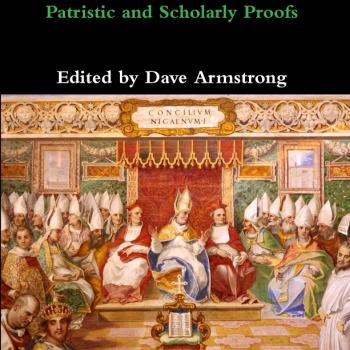Atheism is not new. There have been atheists since Lucretius, but it is not inconsequential that almost all of those we think of as important atheists lived after 1600, those such as Spinoza, Hume, Voltaire, and Nietzsche.
Lucretius's atheism is quite different than the atheism that comes later. He doesn't disbelieve in the gods. Rather, he argues that they are irrelevant to us. The atheism we most often think of denies any gods at all.
Atheism as we know it is a modern, in other words post-16th-century, phenomenon. In a 1969 essay, "The Debate About God," Alasdair MacIntyre notes, "the God in whom the nineteenth and early twentieth centuries came to disbelieve had been invented only in the seventeenth century" (pg. 14).
As Nietzsche so splendidly points out, along with modern atheism (disbelief in God for which one can probably give reasons) came another kind, a more passive atheism. This atheism does not require the rejection of the God of theism. Instead it requires simply ignoring him; not caring; forgetting him, the questions to which he was an answer, and the life that he makes possible. (That is what Nietzsche's famous "death of God" is about, our ignorance and forgetting.)
Historically the genuinely new atheism is that which Nietzsche describes, not the rediscovered atheism of Dennett, Dawkins, and Hitchens. The newest new atheism is one that has never thought about the question of God. Its adherents haven't rejected God because they never affirmed him, except perhaps in passing.
Today this kind of atheism is found even among those who think of themselves as believers, those who might respond to polls on religion by affirming belief in God—or "some Higher Power"—but to whom faith and religion make very little day-to-day difference. My suspicion is that though most Americans today profess belief in God and, so, are not atheists in the strong sense, a majority of them are atheists in Nietzsche's weaker, more pernicious sense.
Many are atheists in the same way that many premodern people were theists: it is ingrained in the structure of their cosmos, something they neither see nor question because it is everywhere. But being atheists in that new way, they are consequently more susceptible to the old atheism of Dennett and company. They are more likely to find active atheism more interesting and the arguments of such older-style atheists more plausible. My guess is that the current, renewed interest in explicitly held atheism, as well as its attractiveness, has more to do with the fact that passive atheism has already gained a strong foothold among us.
If believers think that the most important thing they can do to combat atheism is take up the arguments of contemporary atheists, they make a mistake. We may need to take up those arguments, at least as inoculation for those whose trust is still young, since we are unlikely to win over many who make the atheists' arguments. But taking up the atheists' arguments is insufficient, even as inoculation, for it does little if anything to overcome the passive atheism that underlies the interest in active atheism. Passive atheism is the greater threat.
What is needed in response is more witness. Some of that witness should be verbal. Verbal testimony is an important part of Christian witness. But more important is the witness of our lives. The more our lives testify that we are believers, the less possible passive atheism becomes because the more likely it is that those who think of themselves also as believers will see that God is active in the world and that his activity makes a difference.
The lives we live in witness must demonstrate that belief in God makes a positive difference, that those who believe live in a different world than those who don't. God's existence isn't just a fact that one acknowledges, like "Mount Everest is in the Himalayas." It is a fact that defines the way the believer is in the world, related to other persons and to things.





